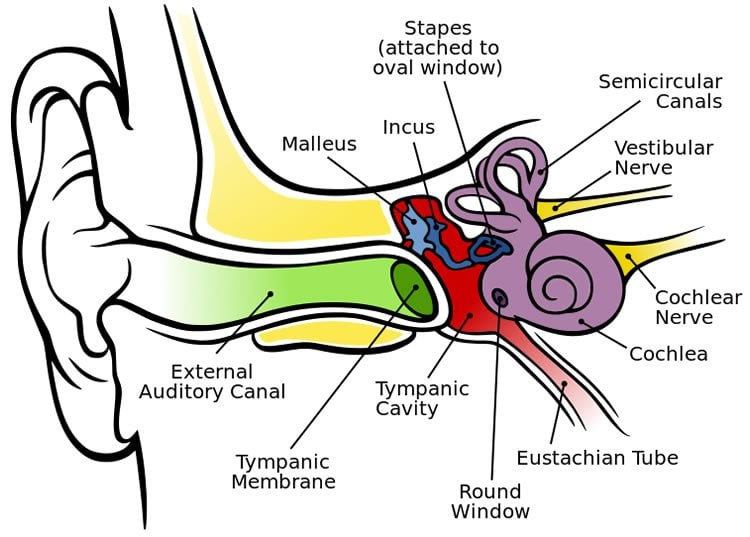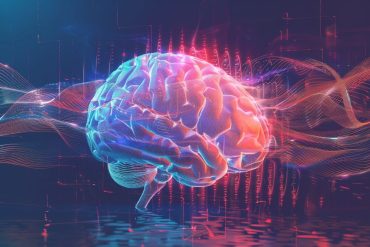Summary: A new study looks at the way in which noise sensitivity is manifested due to changes in the way in which the brain processes auditory information.
Source: University of Helsinki.
Some people experience strong discomfort of sounds around them and complain that they suffer from noise.
Previous studies have shown that noise sensitive individuals are more prone to negative effects of noise on health, such as sleep disturbance and heart diseases, and that sensitivity to noise may be rooted to one’s genetic profile.
In the newly published work A window into the brain mechanisms associated with noise sensitivity, researchers from the University of Helsinki and Aarhus University addressed whether noise sensitivity is manifested in the way the brain processes sounds.
They showed that the auditory system of noise sensitive individuals is less responsive to new sound features introduced among repetitive sounds, especially if the novel sound is noisier than the rest.
Seeming counterintuitive at first, this finding suggests that it may be harder for sensitive people to build a prediction about changes in a varying soundscape, and their auditory system might “tune down” its responsiveness to sounds in order to protect itself from overreacting to noise.

“We need further studies to conclude whether we’ve discovered something that is the reason why people are noise sensitive or is it the result of the brain’s contractions against excessive noise. Nevertheless, this study advances the view on noise sensitivity being more than just a negative attitude to sounds and brings us new information on the physiology of environmental sensitivity,” says the first author of the study, doctoral student Marina Kliuchko from the University of Helsinki.
The contribution of this study crosses boundaries of the brain science and reaches to public and occupational healthcare. The researchers hope that their work will highlight that noise sensitivity is an important issue to be recognized in planning noise control in living and working environments.
The work was completed at Cognitive Brain Research Unit (CBRU) of University of Helsinki in collaboration with University of Helsinki’s Department of Public Health and CICERO Learning network, BioMag Laboratory, and Center for Music in the Brain at Aarhus University, Denmark.
Source: Marina Kliuchko – University of Helsinki
Image Source: NeuroscienceNews.com image is credited to Chittka L, Brockmann, licensed CC BY 2.5.
Original Research: Full open access research for “A window into the brain mechanisms associated with noise sensitivity” by Marina Kliuchko, Marja Heinonen-Guzejev, Peter Vuust, Mari Tervaniemi & Elvira Brattico in Scientific Reports. Published online December 15 2016 doi:10.1038/srep39236
[cbtabs][cbtab title=”MLA”]University of Helsinki “Noise Sensitivity Traced to Changes in Brain Function.” NeuroscienceNews. NeuroscienceNews, 19 December 2016.
<https://neurosciencenews.com/noise-sensitivity-brain-function-5778/>.[/cbtab][cbtab title=”APA”]University of Helsinki (2016, December 19). Noise Sensitivity Traced to Changes in Brain Function. NeuroscienceNew. Retrieved December 19, 2016 from https://neurosciencenews.com/noise-sensitivity-brain-function-5778/[/cbtab][cbtab title=”Chicago”]University of Helsinki “Noise Sensitivity Traced to Changes in Brain Function.” https://neurosciencenews.com/noise-sensitivity-brain-function-5778/ (accessed December 19, 2016).[/cbtab][/cbtabs]
Abstract
A window into the brain mechanisms associated with noise sensitivity
Noise sensitive individuals are more likely to experience negative emotions from unwanted sounds and they show greater susceptibility to adverse effects of noise on health. Noise sensitivity does not originate from dysfunctions of the peripheral auditory system, and it is thus far unknown whether and how it relates to abnormalities of auditory processing in the central nervous system. We conducted a combined electroencephalography and magnetoencephalography (M/EEG) study to measure neural sound feature processing in the central auditory system in relation to the individual noise sensitivity. Our results show that high noise sensitivity is associated with altered sound feature encoding and attenuated discrimination of sound noisiness in the auditory cortex. This finding makes a step towards objective measures of noise sensitivity instead of self-evaluation questionnaires and the development of strategies to prevent negative effects of noise on the susceptible population.
“A window into the brain mechanisms associated with noise sensitivity” by Marina Kliuchko, Marja Heinonen-Guzejev, Peter Vuust, Mari Tervaniemi & Elvira Brattico in Scientific Reports. Published online December 15 2016 doi:10.1038/srep39236







